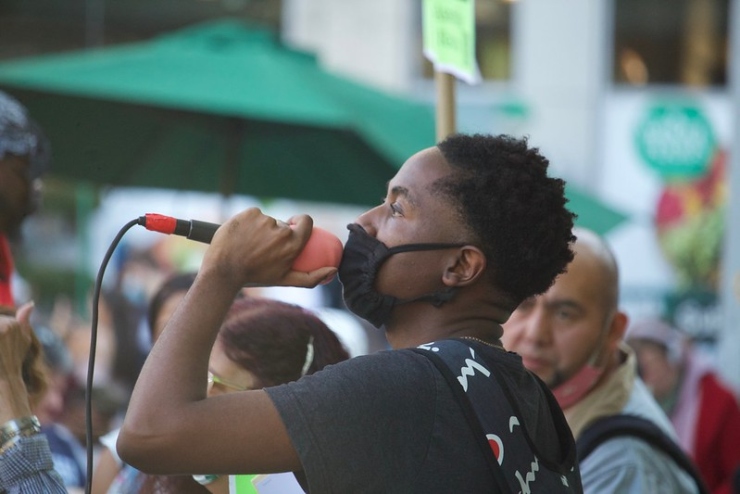
For the purpose of my new book, I spent six months undercover in a UK call centre. The focus of the research was to understand questions of control and resistance from the perspective of call centre workers themselves. This kind of covert ethnography – studying a phenomenon from the point of view from the subject of the study – used to be more common, but is becoming increasingly rare in universities. As the organisation of work is increasingly changing, this approach has the potential to offer important insights into what this means in practice.
Undercover research and surveillance
When I first arrived at the call centre to begin my training, having followed the internet adverts and phone interviews that my new colleagues had too, I realised I was working alongside another undercover researcher. He was a consultant who had been hired by the call centre to spend time on the phones, seeking new ways to speed up and streamline the work. He did not try that hard to conceal his identity, eventually telling all the other trainees why he was there.
The integration of telephones and computers in call centres has provided ample opportunity for surveillance and control. Every single action a worker takes is recorded, monitored, and compared: from the number of sales to the time spent on a call, between calls and on a breaks. Alongside these statistics which the manager collects on each employee, every phone call is digitally stored and can be recalled and replayed at a moment’s notice. In a high-pressure environment in which mistakes are easily made, this is deeply stressful.
This degree of surveillance creates intense feelings of pressure for workers in call centres, which was exacerbated by the presence of the undercover consultant. The stated aim of his research was to increase productivity, with no concern about the effects this would have on an already precarious and demoralised workforce. The coincidence of another undercover researcher also led me to question my role as a researcher and think about the implications of my study for society.
Research is never a neutral process. Throughout each stage, choices are made about what to study, how to study it, and why some things attain more importance than others. While quantitative research (for example, dealing with statistics) has often held to a claim of objectivity, qualitative research like this project necessarily entails a more subjective approach. Academics exist within the social world, and as Ralph Darlington has recently argued there is a need to ‘take sides’, particularly when investigating the employment relationship.
The experience of the work
It has become increasingly popular to talk about how automation is going to sweep away whole areas of employment and trigger a radical transformation of work. However, in the call centre I worked for, employees were being asked to do something that is very difficult to automate. Successfully making sales involves more than simply reading out a script. Instead, workers must mobilise a complex package of affects – different kinds of emotional labour, including rapport building, humour, and nuanced understanding – all with only their voice over the telephone.
Many of the calls that I made were difficult, either due to the pressure to make sales or the responses from potential customers. Selling life insurance meant that, often, potential customers would become upset, particularly as one angle to make sales was to raise the issue of “what would happen to their family were they to suddenly die”. In this kind of context, it is no surprise that most call centre workers do not stay long term. At points the turnover could be as high as 50% in a month.
When I first arrived at the call centre I did not find resistance, nor would the undercover consultant. However, by choosing to ‘take sides’ in the call centre, experiencing it from the point of view of workers, over time I found that it was an active site of informal resistance. The pressurised conditions pushed workers into resisting. This struggle over the employment relationship is mostly hidden, but it also expresses the potential for a different way to organise work. Rather than using technology for even greater control, it could instead facilitate much greater flexibility, but deliberate choices have been made in its application.
The wider context
The aim of Working the Phones was to provide a window into the experiences and conditions of call centre work, confirming that it is indeed stressful, difficult, and precarious. However, the book also aimed to go beyond this, exploring how workers, both individually and collectively, are actively opposing how their work is currently organised, expressed most clearly in their refusal and high turnover rates. In this context, technology does not only offer the possibility for surveillance and dictatorial control, it can also allow for greater autonomy and freedom at work. To understand this further there is a pressing need for more ethnographic studies of work, especially if we want to ask questions about automation and what kinds of work we want in the future.
♣♣♣
Notes:
- This blog post was originally published at LSE’s Department of Management blog. It is based on the author’s book Working the Phones: Control and Resistance in Call Centres.
- Jamie will be speaking about his experience of going undercover and the organisation of work in the modern workplace at a free LSE public lecture on Tuesday 20 June 2017. Find out how you can attend.
- The post gives the views of its author, not the position of LSE Business Review or the London School of Economics.
- Featured image credit: Marketing office, by negativespace, under a CC0 licence.
- Before commenting, please read our Comment Policy.
 Jamie Woodcock is a fellow at LSE and author of Working the Phones. His current research focuses on digital labour, sociology of work, resistance, and videogames. Jamie completed his PhD at Goldsmiths and has held positions at the University of Leeds, University of Manchester, Queen Mary, NYU London, and Cass Business School.
Jamie Woodcock is a fellow at LSE and author of Working the Phones. His current research focuses on digital labour, sociology of work, resistance, and videogames. Jamie completed his PhD at Goldsmiths and has held positions at the University of Leeds, University of Manchester, Queen Mary, NYU London, and Cass Business School.





